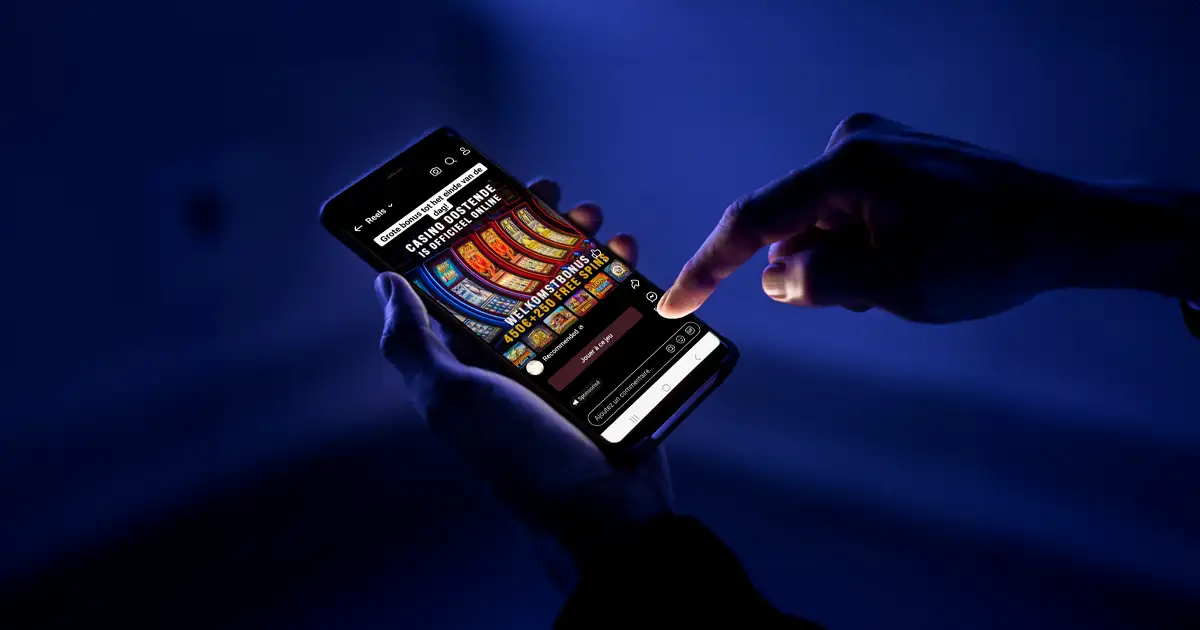Players unknowingly lured into illegal online casinos
Illegal, yet wildly popular: millions of French people unknowingly visit illegal gambling sites, including online casinos. The French National Gaming Authority (ANJ) is launching a campaign to warn people of the dangers of these practices.
With 4 million players, compared to 3.6 million on the regulated market, it is the first time since the market opened in 2010 that the number of illegal gamblers has exceeded the number of legal players. Online gambling such as sports betting and poker are the only legal forms of gambling in France. Online casinos are banned, but that does not stop millions of people from playing on these sites.
On Tuesday 8 October, the ANJ launched a campaign entitled “100% gagnant” to highlight the risks. These include major financial losses, identity fraud and addiction. According to the ANJ, there is a “mafia system” behind these illegal websites, which pose a serious threat to players.
Why online casinos are so addictive
Online casinos in particular seem to be very popular with players. And to attract new players, operators use the latest technologies. For example, a fake video of actor Alain Delon recently surfaced, a few days after his death. The actor’s voice claimed: “I’ll give you €100,000 if you can’t win in my online casino, you can earn €4,000 on the first day.”
Although the video was clearly a “deep fake”, it attracted millions of viewers and probably brought many people to the fake casino website. This is just one example of the thousands of illegal sites that can be found online today. The danger of these gambling sites is great, and people can quickly become addicted to them.
Idriss became addicted without realizing it
One of the many victims is Idriss, who started gambling online five years ago and tells his story to Franceinfo.
“It started with €20, €30, and I started betting bigger and bigger. At first I won a little bit, but then I lost more and more. It became a circle: every time I lost, I thought ‘Try again, I can win it back’. In the end I easily lost €1,500.”
Although Idriss has not played for four months now, he still finds it hard to resist the temptation.
“Yesterday someone mentioned it and I immediately felt the urge to bet €30 again. It goes so fast. You just get sucked in.”
What makes it even more dangerous is that online gambling does not have the protection that you get in physical casinos, where you can get yourself banned. Unfortunately, that is not the case in the digital world.
Illegal gambling sites circumvent French law
In order to stay active, these sites circumvent French law by purchasing licenses abroad, such as in Curaçao. Some even use the ANJ logo to trick players into believing they are playing on a safe site. This shows how clever cybercriminals are who are taking advantage of the growing demand for online gambling in France.
Isabelle Djian, CEO of the French online gambling association AFJEL, explains that cybercriminals are exploiting this demand.
“They know that there is a huge demand for online casinos, something that is not possible in the regulated French market.”
Djian warns that the situation is only getting worse, with criminals even taking over existing illegal sites to make even more profit.
Data theft and other threats
Serious forms of crime lurk behind these illegal gambling sites. These include phishing, stealing personal data and installing malicious software on players’ devices. According to AFJEL, this is costing the French state more than a billion euros in revenue each year.
Is legalising online casinos the solution?
Since March 2022, ANJ has blocked more than 2,360 illegal gambling sites, twice as many as ten years ago. However, this is not enough: as soon as a site is blocked, a new one is quickly launched. ANJ offers a blacklist of illegal sites and works with platforms such as Google and Twitch to tackle these networks.
Some experts, such as those at AFJEL, are advocating legalising online casinos in France to drain the illegal market. But Gaëlle Palermo-Chevillard, who works at the ANJ, is not so sure.
“In Portugal, where online casinos are allowed, 40% of gamblers still play on illegal sites. So it is not a guarantee of success.”
In Belgium, where the market is open, research shows that four out of ten most popular gambling sites are illegal and attract as much as 60% of traffic. This shows that legalisation is not always the solution to the problem of illegal gambling sites.
In addition to combating these illegal casinos, the ANJ has a new challenge on its radar: illegal Jonums (digital games with monetary objects). These are online games in which players can buy virtual items, such as weapons or outfits, with real money. These so-called “Web3” games operate at the intersection of gaming, finance and gambling, and represent the latest front in the fight against illegal gambling practices.


